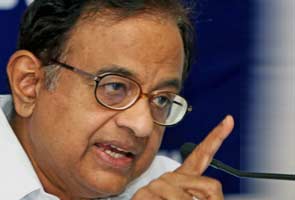
New Delhi, July 13: Home Minister P Chidambaram's pet project, the National Counter Terrorism Centre (NCTC), is set to take-off again after being grounded and scuttled by as many as seven non-Congress chief ministers. Senior member of the Congress party and Assam Chief Minister Tarun Gogoi had also objected to the NCTC. The main opposition, the Bharatiya Janata Party (BJP) too had put up a stiff resistance and criticised the Home Minister over the proposed body.
The reworked NCTC proposal is now with the Cabinet Committee on Security (CCS) - the apex decision making body of the country on security issues, headed by the Prime Minister. The CCS is likely to consider the proposal in the last week of July after the Presidential election, scheduled for July 19, concludes.
The proposed anti-terror body had faced opposition on two counts. The primary objection was about it being placed under the Intelligence Bureau (IB). The IB is primarily designed and tasked to carry out covert executive action. It does not have powers to arrest and works through state police organisations, therefore, does not come directly under legal scrutiny. Placing the NCTC under the IB, it was argued, would jeopardise the IB as it would then be subject to legal scrutiny. Even senior intelligence officers found the prospect of the IB having to explain its actions before a court of law daunting and unwarranted.
Sources have told NDTV that in the fresh Ministry of Home Affairs (MHA) proposal, the NCTC is no longer under the IB. The NCTC will now be a separate organisation which will directly report to the Home Ministry. The Multi-Agency Centre (MAC) - a platform to share varied intelligence inputs coming from various agencies like the Directorate of Revenue Intelligence (DRI), Economic Intelligence Agency, Enforcement Directorate etc. - will be placed under the NCTC. As of now the MAC is within the IB.
In addition to this, the NCTC's ability to carry out counter-terror operations on its own, independent of State Police organisation, was also a major stumbling block. Although, the Union Home Ministry had argued that independent anti-terror operations would be limited and the apprehended suspected would be immediately handed over to the local police, the States, however, weren't convinced with this argument. Odisha Chief Minister Naveen Patnaik, Bihar Chief Minister Nitish Kumar and several others had refused to buy this argument. Instead they claimed that law and order was a state issue and independent anti-terror operations without involving the state police organization would violate the federal structure of the constitution. It is believed that the NCTC will now be able to carry out anti-terror operations only in the rarest of rare cases.







Comments
Add new comment